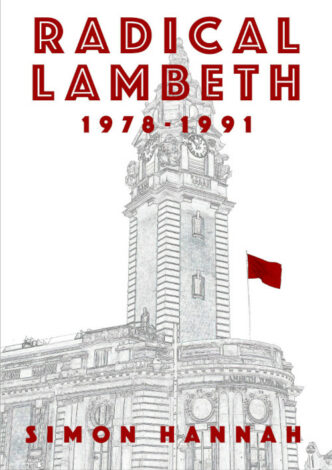This eminently readable and thoroughly researched book offers an insight to the rollercoaster ride of the London borough of Lambeth in the 1980s.
For the whole of local government, the 1980s brought immense challenges. Under enormous pressure from the Thatcher administration, which stripped very substantial finance from councils, local government faced impossible challenges. But the story of Lambeth, as told by Hannah, offers a detailed insight into attempts to maintain local services, keep reasonable working relationships with the borough’s trades unions and cope with a sustained and virulent attack by most of the national press and its local newspaper the South London Press.
As Hannah puts it, the fundamental fight was between councillors, elected on a growth budget, and the slash and burn policies of the Thatcher government. Additional factors in the story were a large black population, particularly in the Brixton area, and their torrid relationship with the police and the notorious Special Patrol Group, leading to the Brixton riots. Housing was a particularly thorny issue for Lambeth in the 1980s, and the book covers the large squatting initiative in the borough, the opposition to council house sales, and the attempt to privatise large council estates via housing action trusts.
Other conservative initiatives to weaken local government, such as compulsory competitive tendering are discussed. Those not overly familiar with local government finance will gain an insight of the crippling impact of the reduction of the Rate Support Grant, not just on service provision to local people, but also the difficulties it created with the trade unions. Always in the background during this period was the Lambeth councillors’ increasingly difficult relationship with the Labour Party hierarchy. There was little or no support for the Lambeth project from that quarter. In fact, it was the Labour National Executive Committee that brought the Lambeth rollercoaster to an end. It effectively formally excluded the leader of Lambeth Council, Joan Twelves, and 11 other councillors from active party activity. This was the era of the rise of the Blairites in the Labour Party.
The book offers some entertaining anecdotes from the period. For example, the much maligned, by the right-wing press, poet in residence, telling his story of visiting groups of people in the borough who believed all poets were dead! Another is the story of the council placing a massive condom over the town hall spire on international AIDS day, and having to remove it the day after because of the risk of it blowing off, and causing traffic mayhem! And then there was John Bercow, then a young Tory councillor, later to be speaker of the Commons, whose fellow young Tories were wearing ‘Hang Nelson Mandela’ t-shirts.
And so Lambeth’s efforts to provide good local services and support the emerging LBGT movement, improving the lot of black people and defending public sector housing came to an end.
However many of those ideas would be pursued by others.
Reviewer: Sean Hosey 19 June 2025
You can buy this book here.





